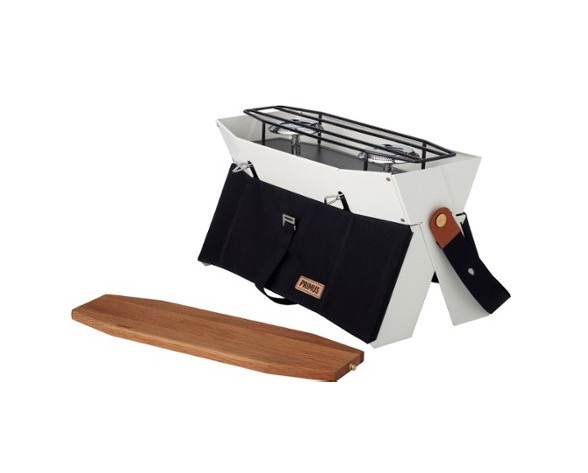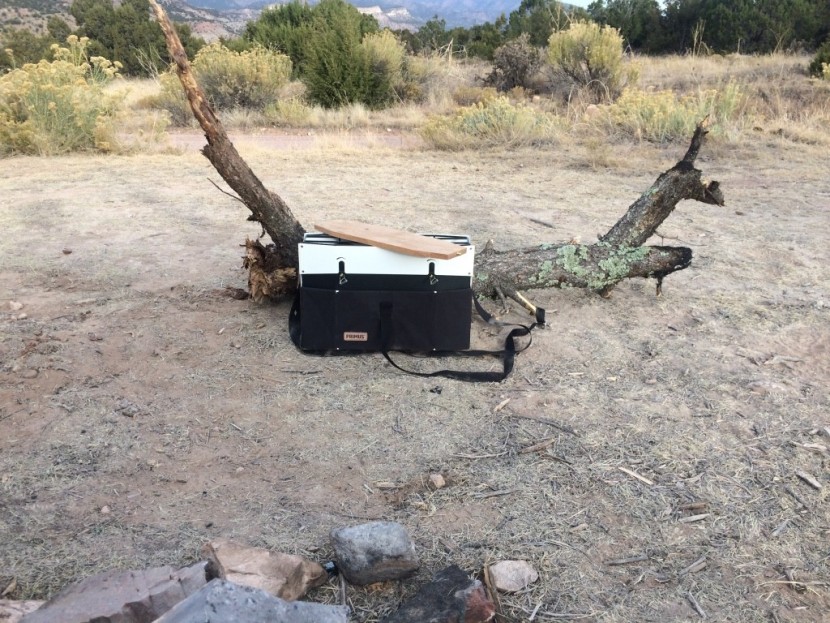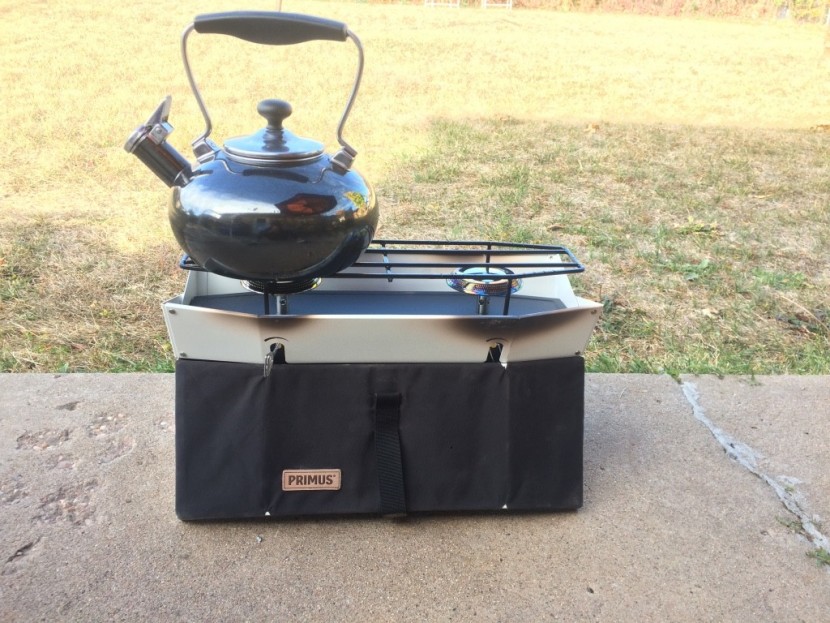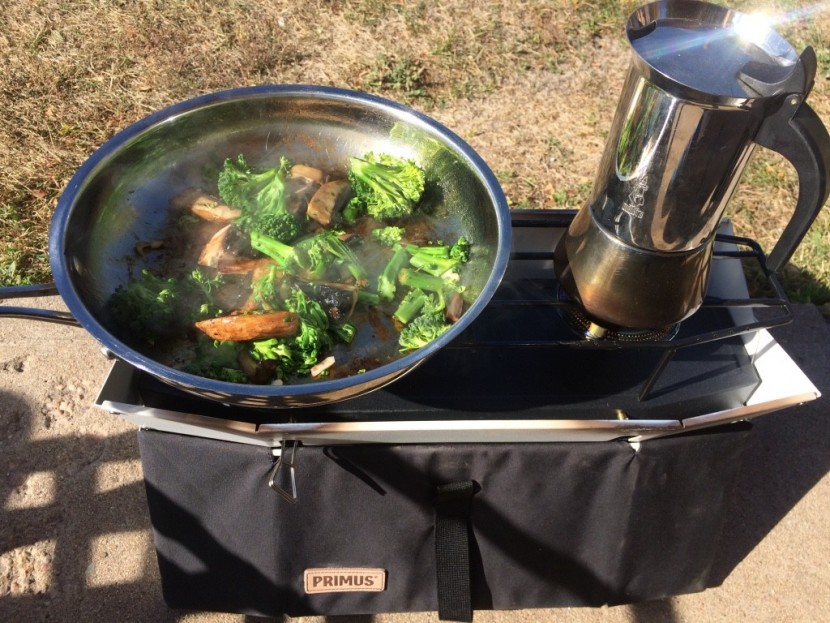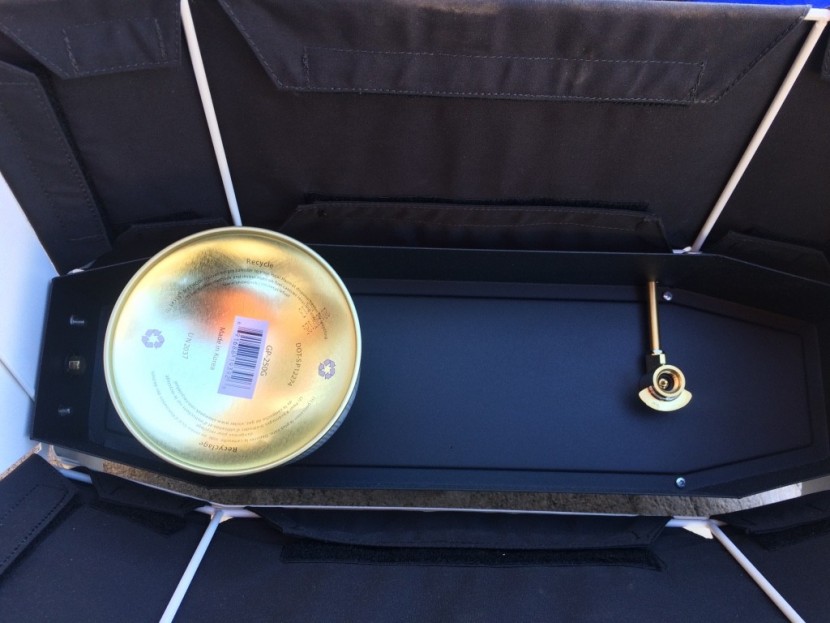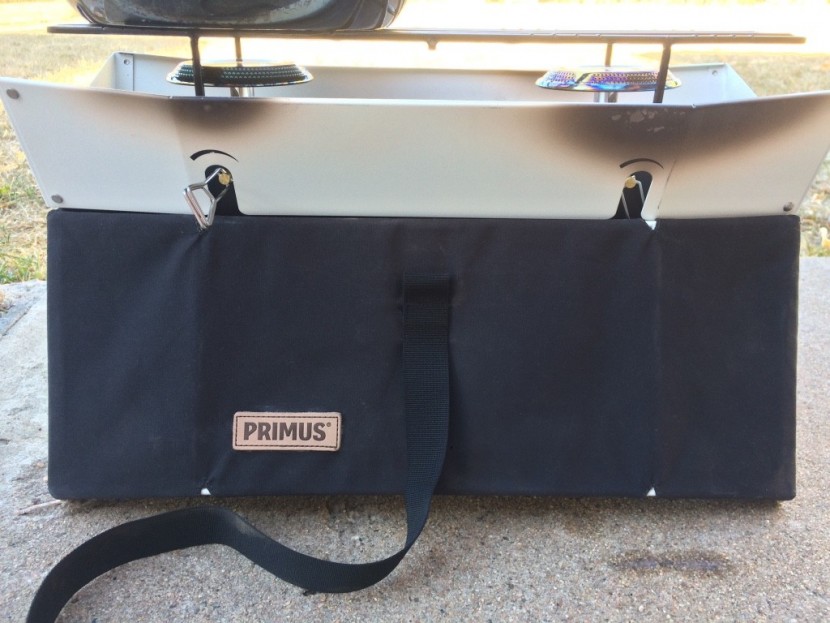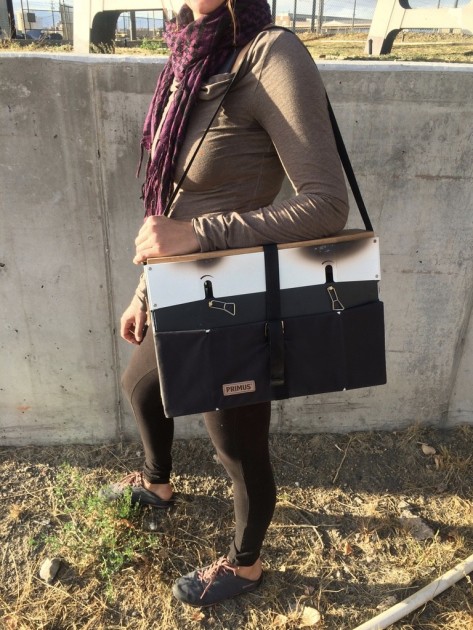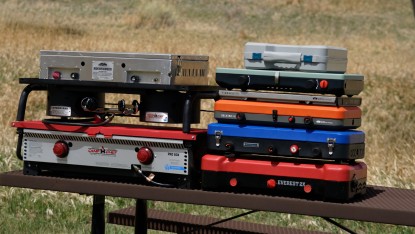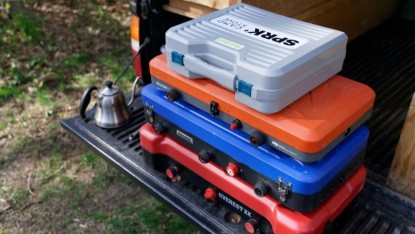Primus Onja Review
Our Verdict
Our Analysis and Test Results
The Onja is a gorgeous little stove to look upon, but when put to practical use it doesn't measure up. With little-to-no wind resistance, low BTUs, an awkward setup, and a tiny cooking area, this stove might be nice for a date night in the park but not for earnest camping situations.
Time to Boil
With 10,000 BTUs per burner, this stove is able to boil water decently fast. We timed it at 4:30 for a quart of 60-degree water and 5:15 for 50-degree water. As soon as there was a tiny breeze, however, this time went up to 6 minutes, and with direct wind, it was much worse (see Wind Resistance section below). The essential pairing needed to achieve a fast boiling time is having both high BTUs and excellent wind resistance, and the Onja falls short in both of these areas.
Wind Resistance
This model was the weakest performer in our test group for wind resistance. We tested each stove with direct and constant wind by setting up a box fan 24 inches to the side and boiling water. Our top performer is the Camp Chef Everest, which boiled a quart of water in 3 minutes. The Onja? With waning fuel and a half-hot tea kettle, we gave up after 27 minutes.
Simmering Ability
Without wind, the Onja simmers pretty well. But if even the slightest breeze comes along the flame will be threatened and easily extinguished. Adjusting the flame down to a low setting is tricky — the burner commonly turns off by accident instead. With no auto-ignition, this means moving pans aside to relight the flame. Overall it 's a bit frustrating.
Due to the narrowness of the cooking area on this stove (and it's height), we initially thought we wouldn't be able to use full-size pots and pans, but this actually wasn't true. The top grate accommodates both small and large cookware, though the larger and heavier the pan (such as a 10" cast iron skillet) the more attention is required to ensure nothing topples over. The burners sit almost a foot off the ground, and the grate that covers them has a slippery coating. When you want to stir something in your pan or skillet, we have to be sure to hold the handle to keep everything stable. If you use larger cookware regularly, you will be better off with a bigger and sturdier cooking surface.
Ease of Set Up
Setting up this stove is a bit of an involved process. First, you must unhook the strap that wraps around the stove body to release the oak cutting board that fits across the burners. From there, the stove must be turned completely upside down to screw in a fuel canister. Each burner requires its own canister, so you will need to know up front if you want to use both burners. If you only attach one fuel canister and then later decide you need the other one, you will have to turn a hot stove upside down to remedy this.
Next, the base of the stove needs to be pulled wide open to create a foundation. If you're not paying attention while you do this, it's easy for one of the burner levers to get tucked underneath the fold and become inaccessible. It's a troublesome process that caused our testers a lot of frustration.
Ease of Care
The Onja suffers in this category too. The paint got irreparably burned on our first use, leaving unsightly black scorches across the front. The burner grate is not removable, so there is no way to get down to the drip tray and properly clean it. And, while the shoulder strap is removable, the holes that fit onto the ends of the cutting board topper get stretched out quickly, which then allows the stove to flip completely upside down while being carried — something it's prone to do because it's top-heavy.
The strap that wraps around the center of the stove body isn't removable and therefore sits in the dirt if you use the stove on the ground. And the base is covered in black fabric that is likely to get burned or damaged over time. It is attached with Velcro on the underside and so can be removed, but that, too, is an involved process. All in all, it's not an easy stove to care for or keep nice.
Portability
This is the only category the Onja scored well in because it's small, light, and has a shoulder strap for transport. It packs down to a nice size, measuring 17 x 6 x 11.5 inches and weighs only 7 pounds (not including fuel). But getting your stove to your car and camp spot is only a small part of the overall cooking experience. A shoulder strap doesn't make up for a stove that suffers in the wind, lacks power, and is a pain to set up. On top of that, though the strap is a nice idea, the top-heaviness of the included cutting board means that the stove tends to flip upside down while being carried.
And though tempting for convenience, it is important not to leave the fuel canisters screwed into the underside of the stove when transporting. The burner levers tend to pop up and open very easily. This happened once, and we realized it because we heard the fuel gurgling. So, as is recommended for all stoves anyway, you will need to be sure to disengage the fuel before transporting.
Best Applications
Considering the cute-factor of this stove, we think its best use is for a date night in the park where all you need to do is heat up something simple and look cool. The fact that it comes with a cutting board is nice, but it's not a very practical shape for anything of size. Serious campers and eaters will need a more serious stove.
Value
This stove is pricey and you can buy much better-performing stoves for less money. The Camp Chef Everest is cheaper and performs at a higher level across the board. Even the large freestanding Camp Chef Explorer 2-Burner, a serious set-up with a ton of BTUs, is cheaper. Point being, the Onja is kitschy and fun and maybe a super-cute gift for someone who is brand new to outdoorsy activities, but for any regular and serious camper the performance and price do not add up.
Conclusion
Our overall assessment of this stove left us disappointed on multiple fronts. The Onja could not handle the wind or any tough usage. Even just the light use of a single cooking session our first time out left the stove body burned and us frustrated. While we can tell that a lot of creativity was put into the design of this stove, many of its elements just need more time at the drawing board.


